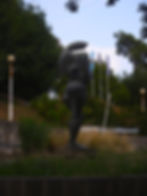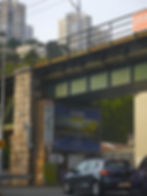Solara 100 - A Sunny Addition | Freshly Baked Series
- Sep 2, 2025
- 2 min read
Updated: Sep 24, 2025
Solara 100 is a new interesting addition to the film simulation bundle. It adds natural warmth and a sun-kissed feel. Whether shooting beach scenes, portraits, or landscapes, this simulation adds a dreamy, summer-like glow.

Warm, Radiant Highlights & Faded Shadows
The simulation leans into warm golden tones, making it ideal for sunset or late-afternoon photography. Skin tones appear natural yet slightly amber-tinted, while shadows remain soft and slightly desaturated, adding to the nostalgic filmic feel. There’s a delicate balance between contrast and softness, preventing harsh blacks and instead offering a smooth, organic look.

Perfect for Portraits, Travel & Beach Photography
As seen in the sample shots, this simulation thrives in bright, sunlit environments. Oceans, sand, and skies get a subtle painterly quality, with subtle color shifts that add character.
Skin tones shift between amber and magenta depending on exposure. Slightly overexpose, and you’ll notice that skin tones will get a pinkish hue, which for me personally is very satisfying.
If it's too magenta for your liking, you can softly push the color filter towards green to correct the blues.

Sky Colors That Change with Exposure
One of the most fascinating features of this simulation is how the sky tones change based on exposure:
Underexpose, and you'll see deep, moody magenta hues creeping in, adding an almost vintage-film atmosphere.
Overexpose, and the skies shift toward a soft teal, creating a cool contrast against the golden highlights in the scene.

Adapting to Older Cameras - Fixing the strong Magenta Cast
Older Sony cameras tend to exaggerate magenta, which can make Solara 100 feel intense, since this recipe already has a strong magenta cast. As a result, the effect may become overpowering.
P.S. - You can also use these adjustments on newer cameras if you're not a fan of the strong magenta cast.
To correct the strong magenta cast, adjust the color filter by shifting it towards green by 0.5 to 1 stop. Additionally, increase the Color Phase by +2 levels to achieve better balance.
These adjustments add more green to the image, helping balance the white balance. Increasing the Color Phase rotates the color wheel clockwise, which prevents unwanted green tones and instead creates a warm, dandelion-yellow hue.

Using Solara 100 at Night
Although this film simulation was primarily designed for daytime use, it also performs exceptionally well at night. With its strong yet faded contrast, it produces long, subdued shadows that create a soft and natural film-like aesthetic.

More SOOC JPEGs with Solara 100
Sony a6700

























Solara 100 shows warmth in highlights, softens shadows, and adds subtle magenta shifts that make each shot feel alive. From golden-hour portraits to glowing beachscapes and low-light scenes, it brings a nostalgic charm while staying natural.
Play with exposure and color filters to find the look you like best. Whether you shoot straight out of camera or build your own workflow, Solara 100 gives a strong, flexible starting point.
Thanks for checking in!
Find Solara here!